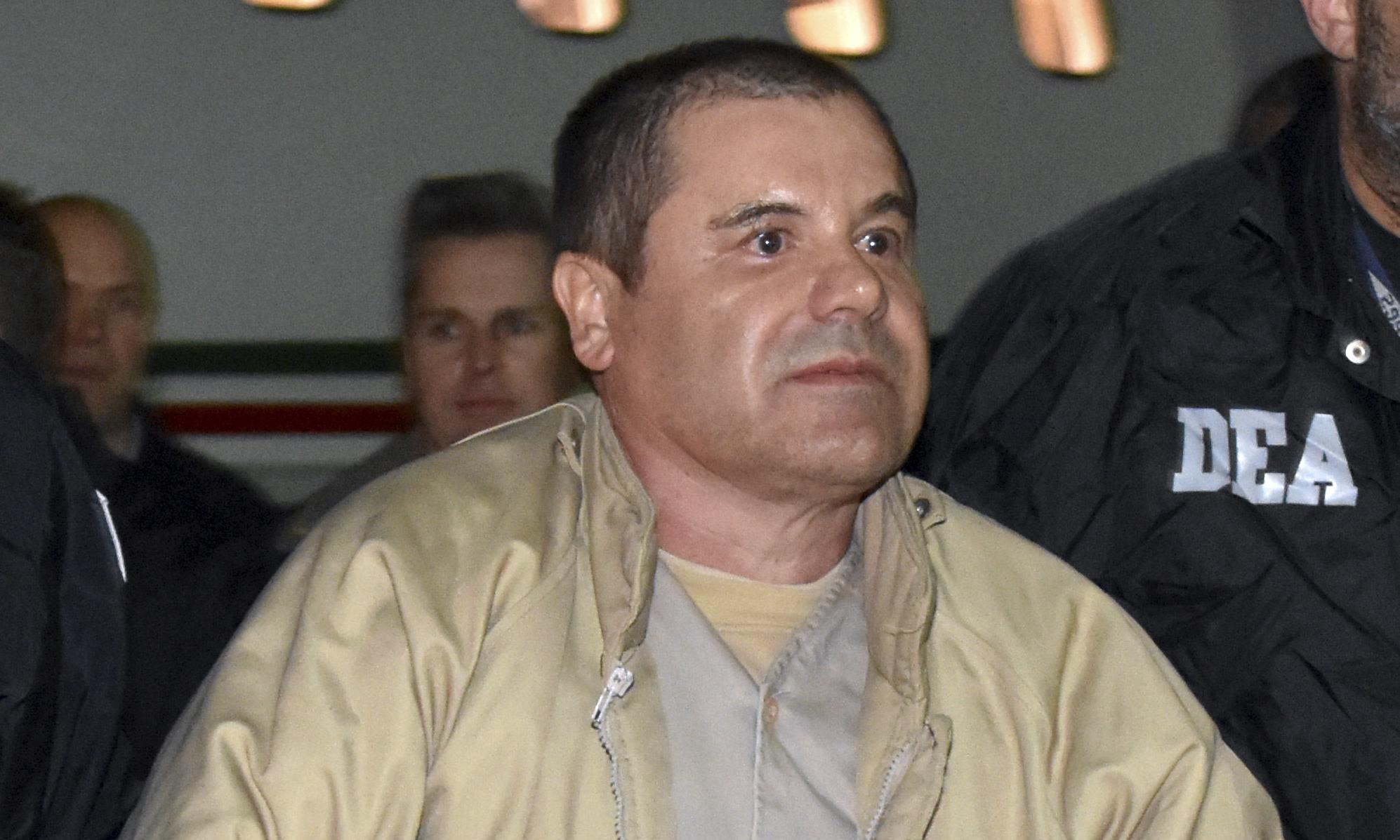Joaquín Guzmán Loera’s defense team complain that their client is being systematically denied due process
Edward Helmore
On the face of it, criminal complaint 1:09-cr-00466-BMC is a straightforward drug-conspiracy case based on 300,000 pages of seized documents, including drug ledgers and shipping manifests, wire-tap recordings and potentially dozens of cooperating witnesses.
But the sheer abundance of discovery material alone is an indication that little about United States v Joaquín Guzmán Loera will be straightforward when jury selection begins in Brooklyn federal Judge Brian Cogan’s court room on Nov. 5.
For the government, it’s a banner prosecution; a rare opportunity to serve justice on a notorious trafficking kingpin known variously as El Shorty (for his diminutive stature), El Rapido (for the efficiency of his trafficking operation), or El Chapo to followers of narco folklore everywhere.
But the passage from extradition on Barack Obama’s final night in office in 2017 to trial in Brooklyn has been fraught with delays caused by defense complaints that Guzmán, for two decades the head of Mexico’s dominant Sinaloa crime cartel, is being systematically denied due process.
“I’ve defended some difficult cases and some notorious clients but I’ve never had both arms tied behind my back like this,” says Jeffrey Lichtman, a heavy hitting New York criminal defence lawyer who formally joined Guzmán’s defence team last month. “This is literally an inquisition. Constitutional fairness has gone out of the window because the government wants a show trial with a quickie conviction.”
The addition of Lichtman, who is best known for winning an acquittal for John Gotti Jr on mob related racketeering charges, has amplified a sense of anticipation before the trial. Guzmán’s wife, the former beauty queen Emma Coronel Aispuro, now attends pretrial hearings with the couple’s two young daughters, who wave and coo excitedly to their father from the gallery. That space is now crammed with increasing numbers of media from Mexico and Central America, where Guzmán remains both reviled and revered.
The vast amount of evidence prosecutors have assembled to back up their story of Guzmán’s two decades at the top has now landed with the defense, a “dump” in their opinion, and assembled “with no rhyme or reason”.
If the government’s evidence against Guzmán is as good as it claims it is, Lichtman argued, why are they treating El Chapo in this fashion? “It’s making me think that maybe the evidence is not so good and they’re going to rely on the evidence of people who’ve spent their entire lives selling drugs and lying,” he said.
Exacerbating the problem of sifting through that material, the defence claims, is being denied sufficient access to a client who does not speak English and whose ability to participate in his defence is hampered by the harsh conditions of his 17-month confinement at the Metropolitan Correctional Center in lower Manhattan.
“He’s in isolation 24 hours a day and his condition is deteriorating,” said Lichtman. “He has no contact with other prisoners and very little contact with jailers, who don’t speak Spanish. He has no ability to speak to his family and gets two calls from his sister totaling half-an-hour a month.”
Though the judge, Cogan, has indicated he’s not inclined to allow testimony about dozens of assassinations Guzmán allegedly ordered between 1989 and 2014, jurors will likely hear the story of a lowly marijuana farmer who rose to create a smuggling empire with annual revenues of $3bn and which, at its peak, was responsible for 25 percent of all illegal drugs entering the US from Mexico. Guzmán’s own fortune, prosecutors estimate, is in excess of $1bn.
After he was hauled from a drainage ditch in the coastal city of Mochis by Mexican federal authorities in January 2016, Guzmán told Mexican prosecutors that he was “just a farmer” who earns 20,000 pesos a year ($1,500) growing corn, sorghum and safflower. He did not, he claimed, “belong to any cartel or have any cartel”.
Part of the government’s rationale for keeping Guzmán under conditions of maximum detention, his legal team concedes, may be rooted in Guzmán’s proven ability to escape from maximum-security prisons in Mexico – once, according to his lore, secreted in a laundry cart and, in a second successful bid for freedom, via a mile-long tunnel that connected to the shower of his cell.
“We have to be realistic,” A Eduardo Balarezo argued. “We’re in a secure facility in downtown Manhattan. Does the government have so little faith it its own security that they think something like that could happen again?”
As the government lays out Guzman’s rise and fall at trial, much of the evidence will come in direct testimony from as many as 40 witnesses, among them Colombian drug lords, couriers, enforcers and accountants – some of who may be allowed to testify under aliases.
One likely prosecution witness is Dámaso López, Guzmán’s former right-hand man who was extradited to the US in July. One figure who might be called by the defence is actor Sean Penn.
Months ago, prosecutors petitioned the judge to exclude any mention of Guzmán’s sit-down interview with Penn for Rolling Stone magazine in 2015, which came shortly before the arrest that led to Guzmán’s extradition. Penn has denied his contact with Guzmán could have tipped off US or Mexican authorities to his whereabouts.
Asked if he believed Penn’s involvement led to his client’s arrest, Balarezo said simply: “I have no doubts about that.”



